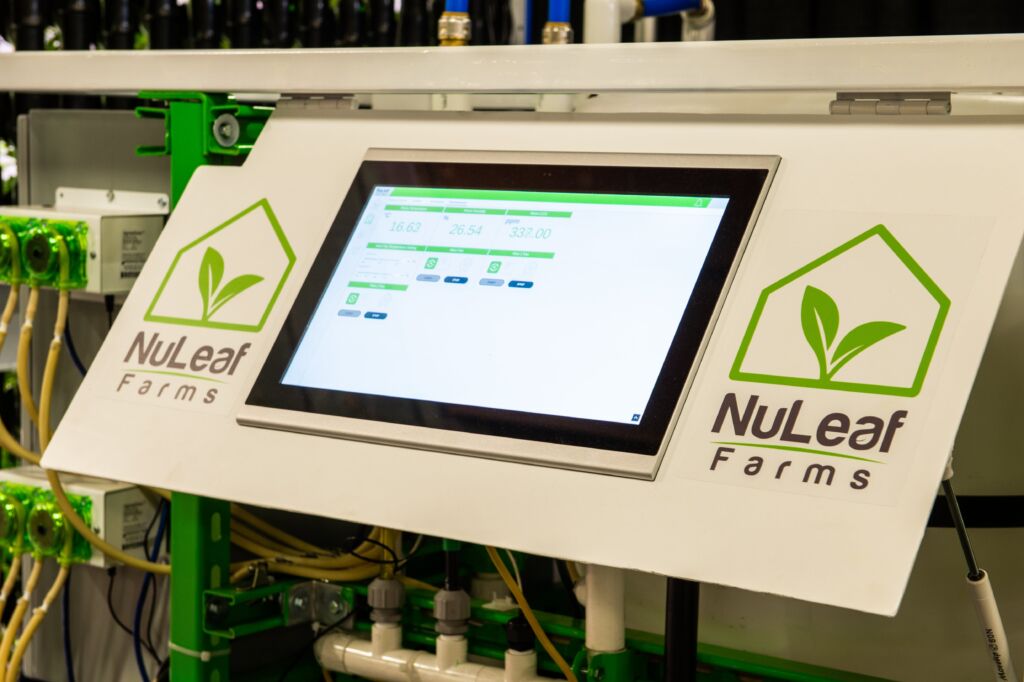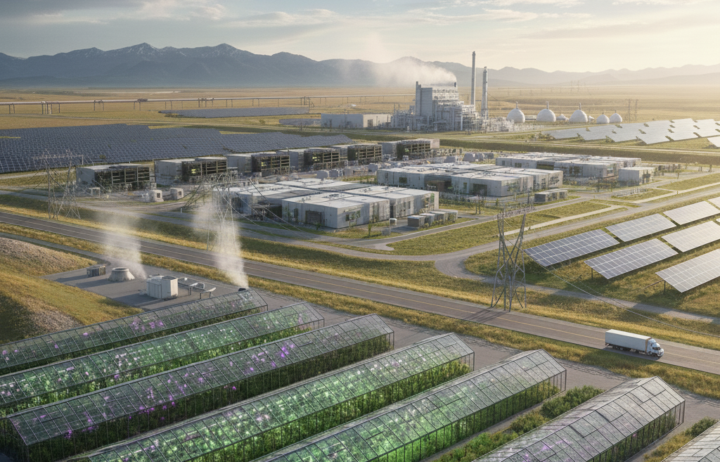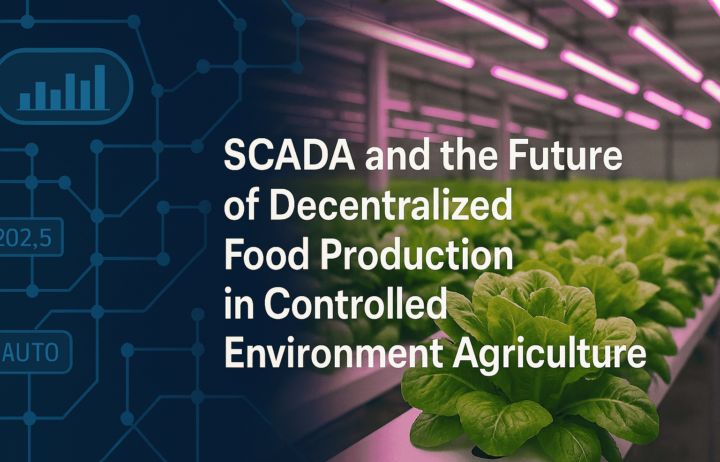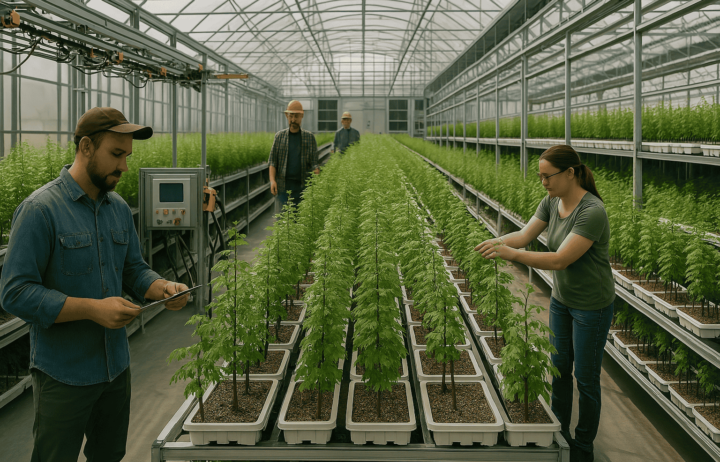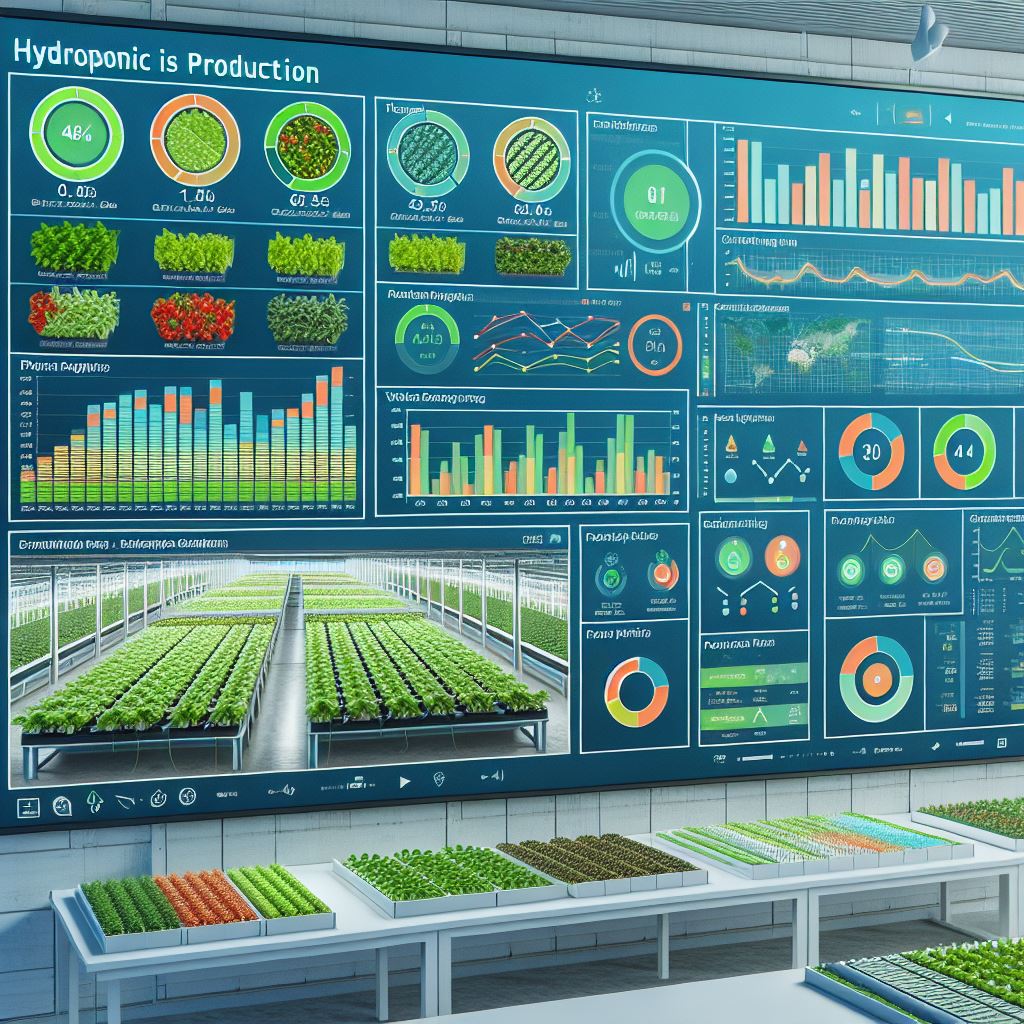
AI and the Future of Indoor Farming: How Automation and Data Is Helping Growers Boost Profitability and Feed the Future

The agriculture industry is entering a new era — one where precision, automation, and data science are becoming as important as seeds, sunlight, and soil. For operators of greenhouses and vertical farms, this shift is not theoretical — it’s practical and necessary.
As land costs rise, labor becomes harder to find, and sustainability targets grow more demanding, Controlled Environment Agriculture (CEA) systems need more than just climate control and LED lighting to thrive. They need intelligence — and increasingly, that means AI.
Profitability Is the Real Breakthrough
The real value of AI in agriculture is often misunderstood. It’s not about replacing farmers — it’s about giving them the tools to make better, faster, and more financially sound decisions.
Indoor farming operations are complex ecosystems. Every variable — lighting, CO₂, nutrient dosing, irrigation timing, airflow, and human labour — impacts outcomes. But these variables often interact in non-linear ways that can be difficult to monitor, much less optimize.
In traditional CEA environments, even the most experienced growers are limited by what they can measure and adjust manually. The result is often underperformance — wasted energy, inconsistent yields, and costs that eat into already thin profit margins.
AI changes this by enabling:
- Real-time system coordination across farm infrastructure
- Prediction of outcomes based on subtle environmental or operational shifts
- Data-informed adjustments that improve resource efficiency and yield
- Continuous learning to refine future decisions based on past performance
In short, AI enables profitability at scale — a long-standing challenge for indoor agriculture.
How Smart Automation Powers the Next Generation of Indoor Farms
Modern CEA systems generate large volumes of data across a range of subsystems. However, these systems are often built from equipment provided by different vendors, leading to fragmented control platforms and isolated data silos.
At NuLeaf Farms, we’ve developed an integrated approach to unify all major components of a farm into one cohesive automation framework. At the core is the Leaf Controller, a centralized automation system designed to coordinate and control all critical farm operations.
This platform connects:
- Climate control systems (HVAC, dehumidification, ventilation)
- Lighting arrays, including spectrum tuning and photoperiod schedules
- Nutrient dosing systems, enabling batch mixing and fertigation control
- Water management infrastructure, including recirculation, irrigation, and sanitation
- Environmental and crop sensors, such as temperature, humidity, EC, pH, and growth stage data
- Operational workflows, including crop planning, task management, and traceability
All of this data flows into a real-time operating layer, where the Leaf Controller makes live adjustments based on defined parameters and dynamic conditions. For example, the system may reduce lighting intensity based on ambient solar gain or adjust nutrient concentrations based on plant age and water EC readings.
Once collected, the data is sent to a cloud-based analytics engine — what we call “Root” — which performs deeper calculations to uncover patterns and identify areas for improvement. This includes:
- Yield-to-input efficiency modeling
- Crop-specific energy and water usage analysis
- Labour-to-output tracking
- Benchmarking of performance across time or between zones
- Identification of operational bottlenecks
Once these insights are processed, the system recommends and implements changes back through the Leaf Controller. These changes may involve subtle adjustments to dosing curves, lighting schedules, or workflow timing — but over time, they compound into measurable gains in yield, cost-efficiency, and profitability.
This closed-loop control architecture means the farm is constantly evolving — adapting not only to crop requirements but also to financial performance metrics.
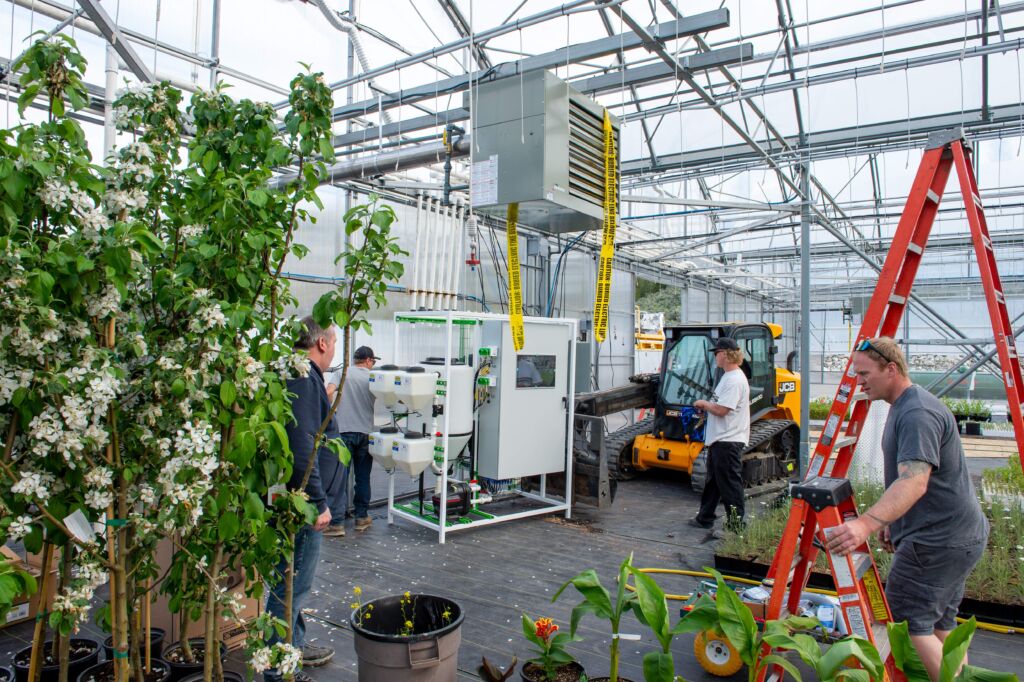
From Thin Margins to Sustainable Profit
Profitability in indoor farming has historically been elusive. Many well-designed farms fail not because they can’t grow crops — but because they can’t grow margins.
High costs in labour, energy, infrastructure, and logistics combine to create financial pressure. AI-enabled systems change the equation by:
- Reducing reliance on skilled labour by automating repeatable tasks
- Cutting energy and water waste through predictive optimization
- Improving crop consistency, which strengthens supply chain reliability
- Allowing more accurate crop planning to reduce overproduction or spoilage
- Accelerating response time to issues like disease, equipment failure, or environmental drift
This kind of operational intelligence gives farm operators a new path forward: instead of managing by gut or reacting to problems, they can proactively optimize performance.
Just as importantly, this kind of data-driven profitability can unlock access to financing, insurance, and new markets — particularly important for smaller or mid-sized operators who need every competitive edge they can get.
Technology That Solves Real Problems
We don’t invest in technology for technology’s sake. Every piece of infrastructure, automation, and AI software deployed at NuLeaf is tied to a simple mission: to make it easier and more viable to grow food locally, profitably, and sustainably.
This is especially important in areas where food production has historically been limited by geography, climate, or cost:
- Remote northern communities, where fresh food often arrives by plane or barge
- Urban cores, where land is expensive and space is limited
- Islands and coastal regions, where importing food creates environmental and economic strain
- School-based and community-led farms, where education and access are as important as yield
By combining precision farming tools with scalable AI platforms, these farms can now operate with the same sophistication — and sometimes greater profitability — as much larger traditional producers.
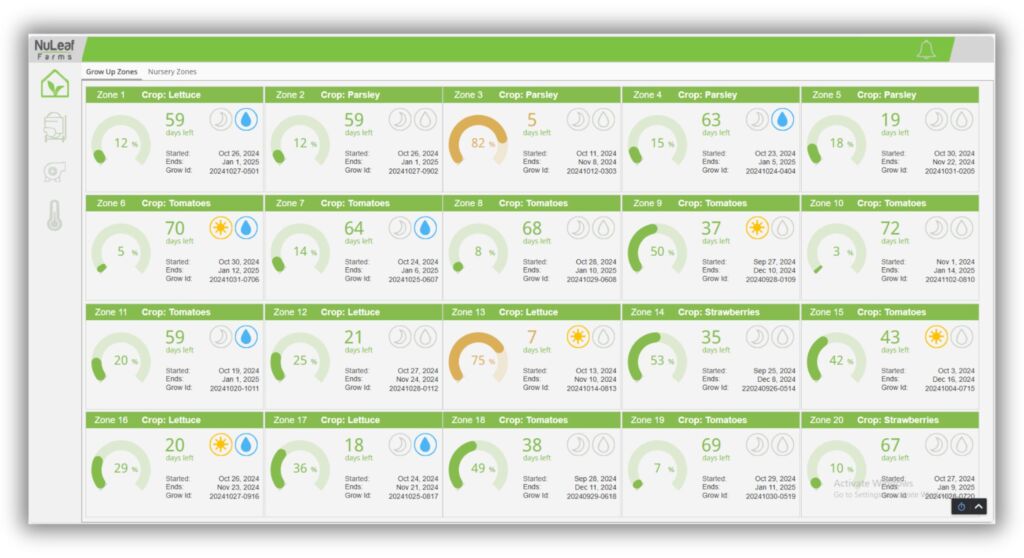
Attracting and Empowering the Next Generation of Growers
The future of agriculture depends on people — especially the next generation of operators who want to build careers in food production but may not come from traditional farming backgrounds.
By turning farm operations into data-driven, tech-enabled environments, we create new opportunities for entrepreneurs, STEM students, tradespeople, and community leaders to take part in the food economy. NuLeaf’s systems are designed to be user-friendly, with dashboards, alerts, and performance guidance available at every step.
Rather than requiring decades of trial and error, new operators can lean on proven data models, automation, and AI insights to run efficient farms from day one. We believe this is the key to not just scaling food production — but creating long-term, rewarding careers in agriculture.
AI is the Engine. Profitability is the Goal. Sustainability is the Outcome.
At NuLeaf Farms, our focus is on enabling existing and future growers to do more with less — less water, less energy, less labour — while unlocking more yield, more quality, and more financial stability.
By leveraging centralized automation and real-time analytics, indoor farms can finally operate with the precision of a manufacturing plant and the adaptability of a living system.
If you’re a grower, greenhouse developer, or a partner looking to modernize operations and drive meaningful impact — let’s talk.
The tools are here. The problems are urgent. The future is growing.
